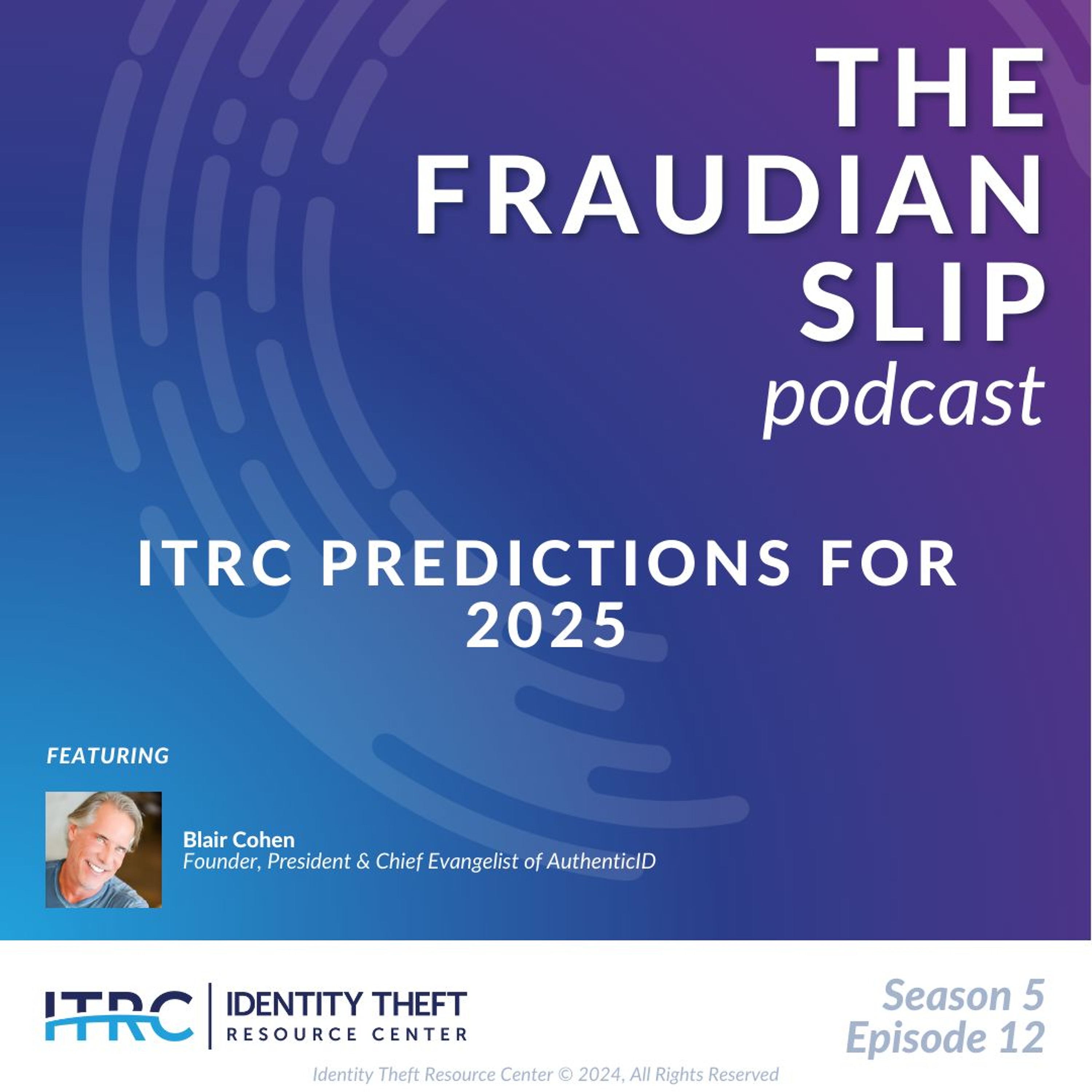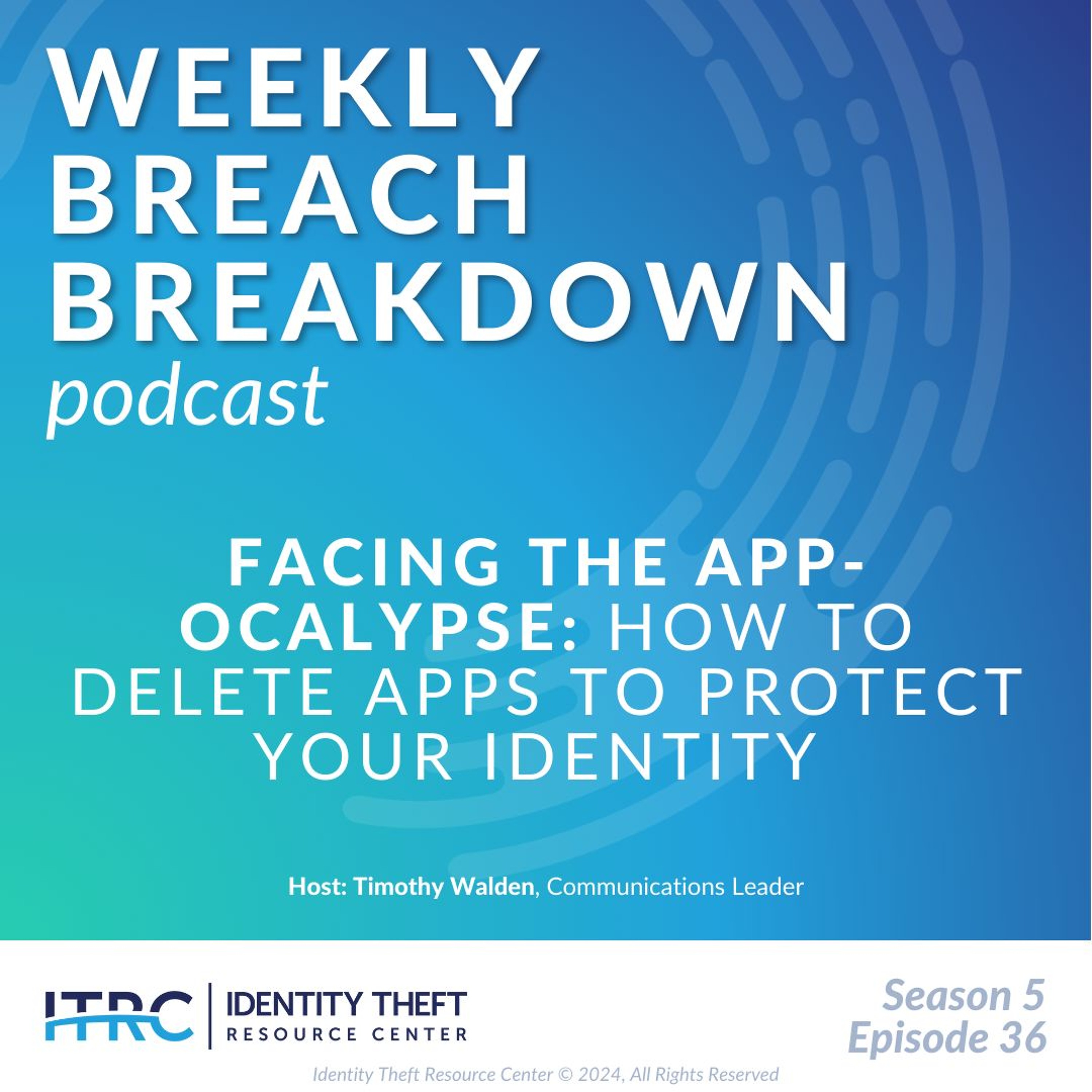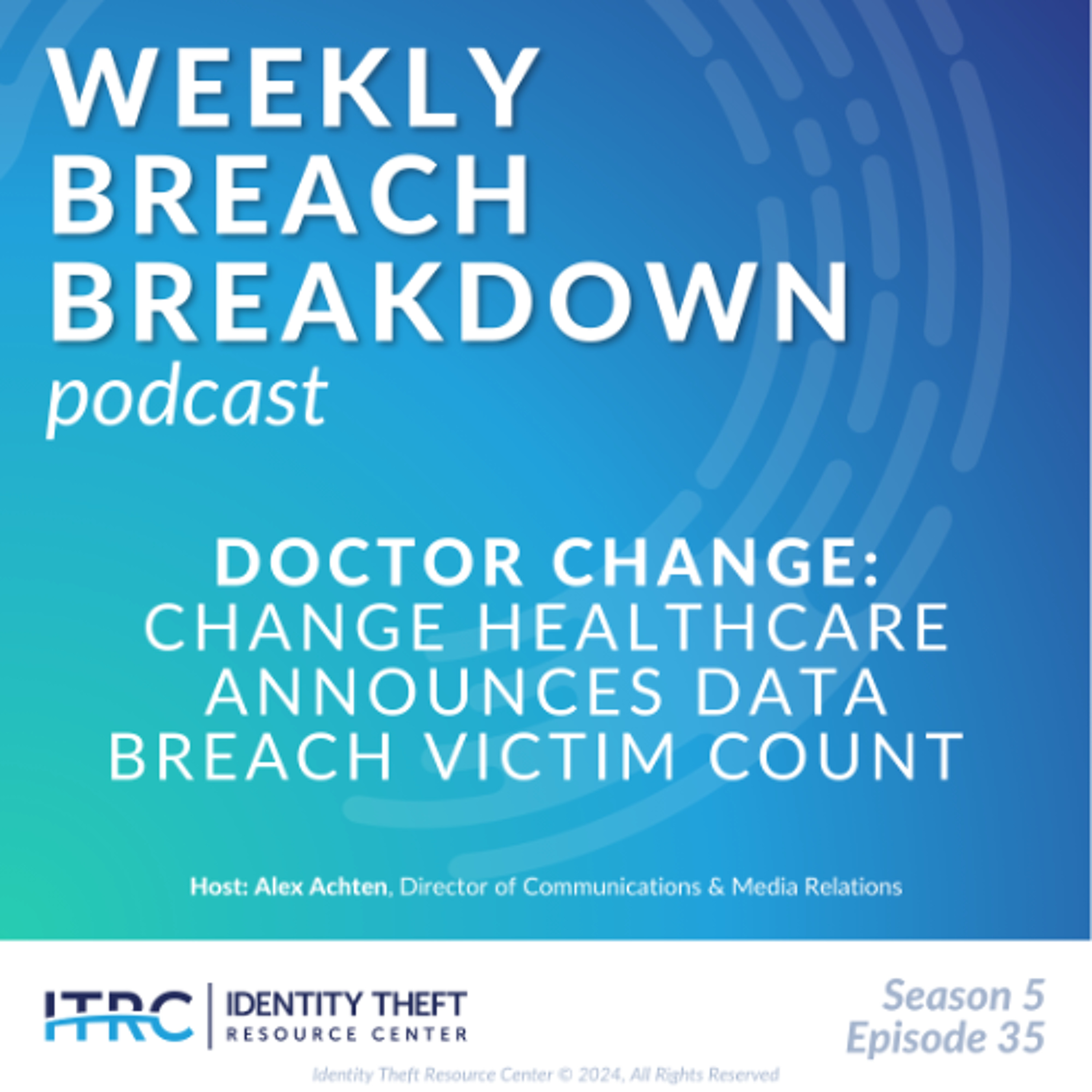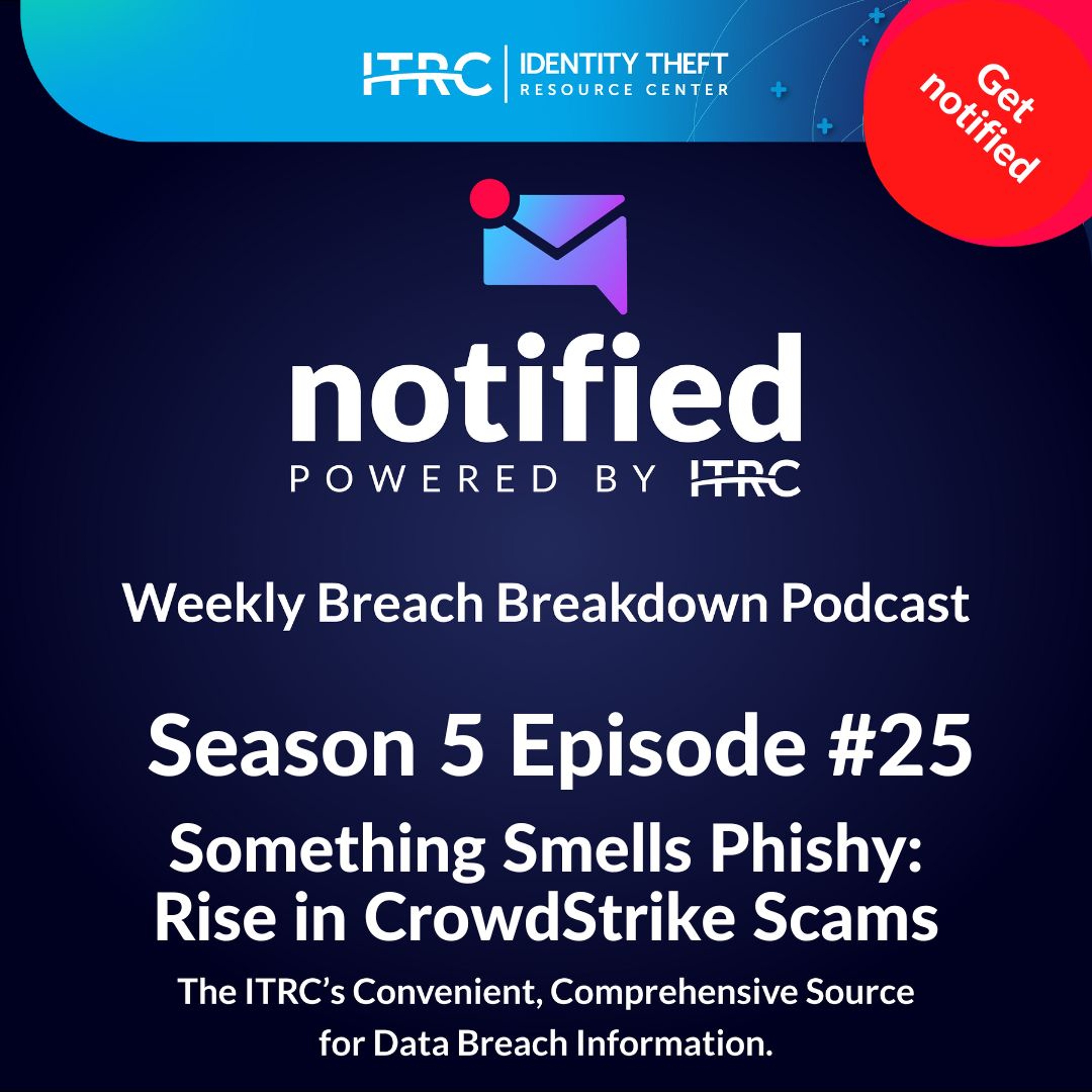Each week on this podcast, we look at the most recent events and trends related to data security and privacy. Today, we'll discuss something I’m sure you’ve heard about by now: Crowdstrike.
Show Notes
Follow on LinkedIn: www.linkedin.com/company/idtheftcenter/
Follow on X: twitter.com/IDTheftCenter
Show Transcript
Welcome to the Identity Theft Resource Center's (ITRC) Weekly Breach Breakdown for August 9, 2024. I'm Timothy Walden. Thanks to SentiLink for their support of the ITRC and this podcast. Each week, we look at the most recent events and trends related to data security and privacy. Today, we'll discuss something I'm sure you've heard about by now: Crowdstrike and CrowdStrike scams.
If you're like me, you understand how pulling at a single thread can unravel an entire tapestry. Whether intentional or not, a single mistake can become a costly one. Well, that's the same premise as what happened with Crowdstrike. Someone pulled the wrong thread and set off a viral chain of reactions.
The recent CrowdStrike outage has raised alarms about the potential for CrowdStrike scams to follow. According to reports from the Multi-State Information Sharing and Analysis Center (MS-ISAC), cybercriminals have taken advantage of the chaos caused by the CrowdStrike outage. In the aftermath of the incident, phony websites and new phishing campaigns have been on the rise, posing additional threats to organizations already grappling with the fallout of the outage.
A faulty configuration file pushed out by CrowdStrike resulted in widespread disruptions with far-reaching implications, disrupting essential services such as flight operations, media outlets, medical procedures, and financial transactions on a global scale. Various public sector agencies, including schools, libraries, 911 call centers, and election offices were also impacted. The repercussions extended to major cities, with Portland, Oregon, even declaring a state of emergency after the incident disabled a significant portion of the city's IT systems.
Another effect of the CrowdStrike outage was the sudden rise in scammers who swiftly seized the opportunity to exploit vulnerable individuals affected by flight cancellations and delays. The Federal Trade Commission issued an alert warning about identity thieves lurking on social media, posing as airline customer service agents in response to posts from frustrated travelers. Criminals tried to trick passengers into divulging sensitive information such as booking confirmation numbers, phone numbers, or bank account details or directed them to spoofed websites designed to harvest their personal information.
For businesses, the CrowdStrike incident is a stark reminder of the cascading effects that can result from disruptions in critical IT systems. The incident also highlighted the vulnerability of relying on a single vendor or IT security solution. It prompted calls for a holistic reassessment of internal systems to identify potential single points of failure.
For consumers, it's essential to be extra cautious, especially in light of the CrowdStrike incident, as criminals seek to take advantage of high-profile cyber incidents. To help keep you safe from CrowdStrike scams, we've got a few tips for you to follow:
- Hang up on any suspicious or unsolicited calls.
- If you get a text that you are not sure is legitimate, stop what you are doing and contact the business you know to be the one where you do business.
If you want to know more about how to protect your business or personal information or if you think you have been the victim of an identity crime or one of the CrowdStrike scams, you can speak with an expert ITRC advisor on the phone or via text (888.400.5530), chat live on the web, or exchange emails during our regular business hours (6 a.m.-5 p.m. PT). Just visit idtheftcenter.org to get started.
Thanks to SentiLink for their support of the ITRC and this podcast. If you have not done so, check out our last Weekly Breach Breakdown podcast, where we break down the CrowdStike and AT&T incidents and what they mean for our digital footprints. Also, listen to our latest Fraudian Slip podcast where ITRC President and CEO Eva Velasquez interviews two identity crime victims. We'll return next week with another episode of the Weekly Breach Breakdown. I'm Timothy Walden; thanks for listening.
Listen On
Also In Season 5
-

The Fraudian Slip Podcast - 2025 Predictions
Welcome to the Fraudian Slip…the Identity Theft Resource Center’s podcast where -

The Weekly Breach Breakdown Podcast by ITRC - Copyrightcat - S5E37
Welcome back to the Identity Theft Resource Center’s Weekly Breach Breakdown – s -

The Weekly Breach Breakdown Podcast by ITRC - Facing the App-ocalypse - S5E36
Welcome to the Identity Theft Resource Center's Weekly Breach Breakdown for Nove -

The Weekly Breach Breakdown Podcast by ITRC - Doctor Change - S5E35
Welcome to the Identity Theft Resource Center's Weekly Breach Breakdown for Nove
